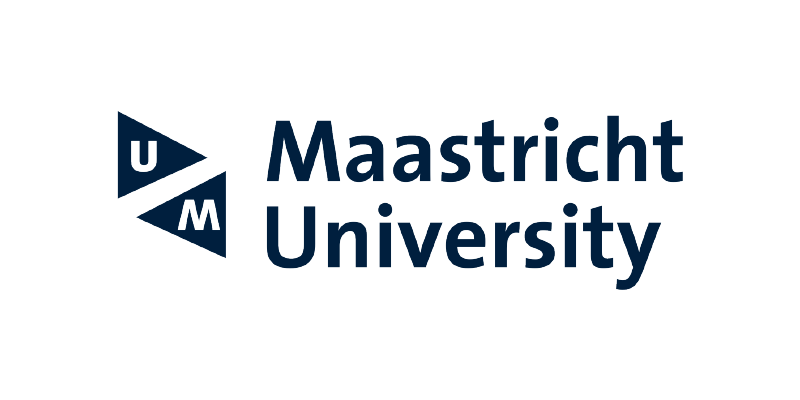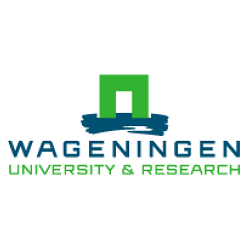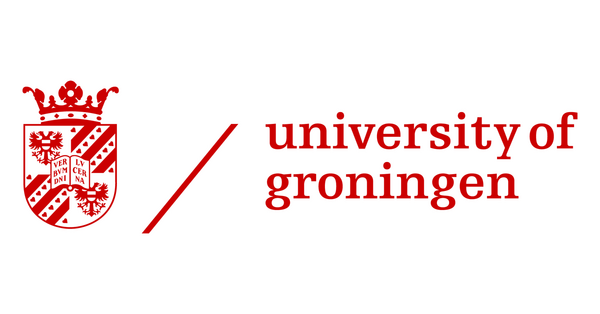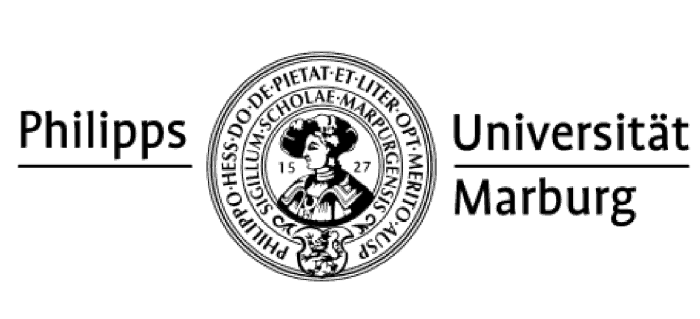Snabbfakta
-
- Maastricht
- Heltid
- Rekrytering
Kategorier:
- Biologi
- Medicin
Titlar:
- Doktorand
Ansök senast: 2024-11-06
PhD position Department of Food Innovation and Health, Bioavailability of plant-based micronutrients
Job description
Undernutrition or malnutrition plays a major role in the development of multiple diseases. Fruit and vegetable consumption in sufficient quantities is very challenging, while in general the bioavailability of micronutrients is low. In this project the aim is to elucidate the underlying mechanisms of intestinal absorption of plant-based micronutrients and enhance the uptake. To enhance uptake, the micronutrients will be encapsulated in nanoparticles or alginate beads, and incorporated in relevant food matrices.
Job Description
We are looking for a highly motivated, creative candidate with a strong background in Biomedical Sciences or (Medical) Biotechnology or a related field. This is a challenging, multi-disciplinary, collaborative project that will be performed at multiple locations (primarily in Venlo and in part in Maastricht, both at Maastricht University in the Netherlands). We encourage applicants who have a passion for nutrition and life style interventions and have sufficient planning and organizational skills to apply. The PhD candidate will:
- Develop and characterizing a food innovation by encapsulating micronutrients in nanoparticles/alginate beads;
- Perform in vitro research with gastric, intestinal and colonic epithelial cell lines (e.g. NCI-N87, Caco-2) and organoid models combined with microbiota models to investigate (intestinal) absorption; Use different in vitro digestion models such as the INFOGEST model and/or the TIM1 dynamic model to determine the effect of the food matrix on the bioaccessibility of micronutrients;
- Write a project proposal and obtain medical ethical approval for a randomized controlled trial; Plan, coordinate and perform a human lifestyle intervention study; Write high-quality papers to be published in international peer-reviewed journals (under supervision); Complete a PhD thesis in 4 years;
- Collaborate with a multidisciplinary team of researchers aiming to enhance bioavailability of micronutrients, thereby increasing the efficacy of compounds with respect to metabolic health outcomes; Set up and maintain collaborations with other partners;
- Perform biochemical lab analyses, microscopy analyses and accompanying data analyses; Design and carefully execute experimental work and handle cell lines;
- Analyze data and present research outcomes at group meetings, national and international conferences;
- Be informed and updated about the relevant scientific literature within the field of study;
- Supervise research assistants and students, where appropriate.
Requirements
- Master Degree (MSc) in a relevant field (e.g. Biomedical Sciences, (Medical) Biotechnology, Biomedical Engineering, Medicine, Health Sciences, Nutrition);
- Cell culture experience (a SMT certificate is required), preferably experience with culturing organoids;
- Experience in cell and molecular biological techniques like qPCR (biochemical analyses techniques, cell culturing);
- Team player;
- Excellent communicator (proficiency in English speaking and writing and preferably in Dutch to be able to work in a clinical setting with regional study participants);
- Excellent planning and organizational skills;
- Advanced skills in bio-statistics.
What we offer
As a PhD-candidate at the Faculty of Health, Medicine and Life Sciences, you will be employed by the most international university in the Netherlands, located in the beautiful city of Maastricht. In addition, we offer you:
- Good employment conditions. The position is graded according to UFO profile PhD, with corresponding salary from €2872,00 in the first year to €3670,00 gross per month in the fourth year (based on a full-time employment of 38 hours per week). In addition to the monthly salary, an 8.0% holiday allowance and an 8.3% year-end bonus apply.
- An employment contract for a period of 12 months with a scope of 1,0 FTE. Upon a positive evaluation, an extension of 3 years will follow.
- At Maastricht University, the well-being of our employees is of utmost importance, we offer flexible working hours and the possibility to work partly from home if the nature of your position allows it. You will receive a monthly commuting and internet allowance for this. If you work full-time, you will be entitled to 29 vacation days and 4 additional public holidays per year, namely carnival Monday, carnival Tuesday, Good Friday, and Liberation Day. If you choose to accumulate compensation hours, an additional 12 days will be added. Furthermore, you can personalize your employment conditions through a collective labor agreement (CAO) choice model.
- As Maastricht University, we offer various other excellent secondary employment conditions. These include a good pension scheme with the ABP and the opportunity for UM employees to participate in company fitness and make use of the extensive sports facilities that we also offer to our students.
- Last but certainly not least, we provide the space and facilities for your personal and professional development. We facilitate this by offering a wide range of training programs and supporting various well-established initiatives such as 'acknowledge and appreciate'.
The terms of employment at Maastricht University are largely set out in the collective labor agreement of Dutch Universities. In addition, local provisions specific to UM apply. For more information, click here.
Maastricht University
Why work at Maastricht University?
At Maastricht University (UM), everything revolves around the future. The future of our students, as we work to equip them with a solid, broad-based foundation for the rest of their lives. And the future of society, as we seek solutions through our research to issues from all around the world. Our six faculties combined provide a comprehensive package of study programmes and research.
In our teaching, we use the Problem-Based Learning (PBL) method. Students work in small groups, looking for solutions to problems themselves. By discussing issues and working together to draw conclusions, formulate answers and present them to their peers, students develop essential skills for their future careers.
With over 22,300 students and more than 5,000 employees from all over the world, UM is home to a vibrant and inspiring international community.
Are you drawn to an international setting focused on education, science and scholarship? Are you keen to contribute however your skills and qualities allow? Our door is open to you! As a young European university, we value your talent and look forward to creating the future together.
Click here for more information about UM.
Faculty of Health, Medicine and Life Sciences
At the Faculty of Health, Medicine and Life Sciences (FHML), everything revolves around healthy living. Our research and education are not solely focused on recovery, but place a strong emphasis on prevention, health preservation, and health promotion. Our aim is to use our knowledge and expertise to genuinely contribute to the well-being of individual people as well as society in total.
In, research, and healthcare, FHML is closely collaborating with the academic hospital in Maastricht, together forming the Maastricht University Medical Center (MUMC+). FHML is strongly connected in education, research, and care with the Maastricht academic hospital, together with which it forms the Maastricht University Medical Centre (MUMC+).
FHML, which is the largest faculty of Maastricht University, is formed by an (inter)national community of employees and students. The faculty offers a wide range of Dutch and English-taught bachelor's and master's programs in innovative educational concepts in which the emphasis is always on building bridges to practice.
The multidisciplinary research of the FHML focuses on a number of carefully chosen topical current themes. In addition to research aimed at gaining new insights, it also concerns research whose results can be directly translated into concrete applications and innovations. The implementation of the various research programs is organized in our six graduate schools and two institutes.
Group Food Innovation and Health
The Food Innovation and Health group is part of the department of Human Biology. The research facilities of Maastricht University - campus Venlo are located in Villa Flora, in the Venlo region. The building forms a site where numerous public and private parties join together in research and development of healthy food. The Maastricht University facilities are, with approx. 600 m2, the largest in Villa Flora, and have been in use only since Jan 2017. The brand new facilities are state-of-the-art, and are an excellent setting for the anticipated project. The Food Innovation and Health group, where the research will be carried out, has a close collaboration with the Maastricht University Medical Centre+ and the VieCuri Medical Centre in Venlo. The research facilities include dietary intervention facilities, clinical intervention laboratories, an exercise physiology lab, analytical facilities, a molecular biology lab and cell culture lab.
Department
The Department of Human Biology is part of the Institute of Nutrition and Translational Research in Metabolism (NUTRIM), within the Faculty of Health Medicine and Life Sciences (FHML) of Maastricht University. The central research theme of the Department of Human Biology is Healthy Living with Obesity, Sarcopenia, Energy metabolism and Cardiometabolic Health as spearheads.
NUTRIM
Research Institute of Nutrition and Translational Research in Metabolism is part of the Faculty of Health Medicine and Life Sciences of the Maastricht University. NUTRIM catalyses translational research into metabolic and chronic inflammatory disorders, and aims to contribute to health maintenance and personalized medicine by unraveling lifestyle and disease-induced derangements in metabolism, and by developing targeted nutritional, exercise and drug interventions. Within NUTRIM, approximately 400 scientists including 245 PhD students, and an additional 70 support staff members work interdisciplinary together in 16 Biomedical, clinical, and behavioral-science departments. Through its PhD programme, NUTRIM aims to educate investigators of high scientific excellence and ambassadors to support and develop the field of nutrition and translational research in metabolism within and outside the Netherlands. NUTRIM is partner within unique consortia in which academia, industry and the government join forces to stimulate the transfer of knowledge generated in fundamental research to Dutch industry, thereby strengthening its innovative power and competitive strength. For more information (NUTRIM website): htps://www.maastrichtuniversity.nl/research/school-nutrition-and-translational-researchmetabolism
Curious?
Are you interested in this exciting position but still have questions? Feel free to contact Mireille Sthijns at mireille.sthijns@maastrichtuniversity.nl for more information.
Applying?
Or are you already convinced and ready to become our new w PhD candidate investigating the bioavailability of plant-based micronutrients? Apply now, no later than 6 November 2024, for this position.
If you apply for this position, please include:
- A letter of motivation;
- A curriculum vitae, including name(s) of one or two people who can provide a recommendation;
- A “Project Assessment” (1 page maximum) that describes your understanding of the project (i.e.key objectives, tasks, your additional ideas), how you would apply your existing knowledge to the project, and what new skills or knowledge you hope to learn to complete the project successfully;
- Higher education certificates (incl. courses taken and marks achieved).
The vacancy is open for internal and external candidates. In case of equal qualifications, internal candidates will be prioritized.
Maastricht University is committed to promoting and nurturing a diverse and inclusive community. We believe that diversity in our staff and student population contributes to the quality of research and education at UM, and strive to enable this through inclusive policies and innovative projects led by teams of staff and students. We encourage you to apply for this position.



